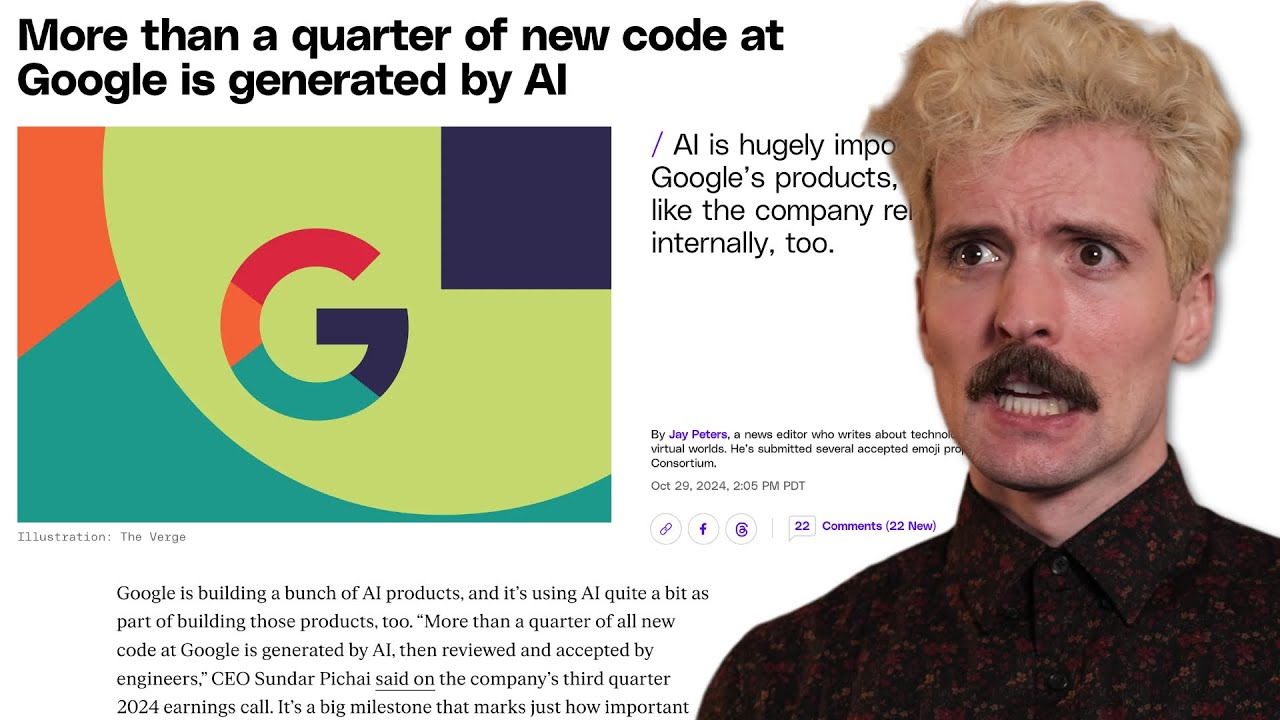The video examines Google’s growing reliance on AI for code generation, noting that over a quarter of new code is now AI-generated, which raises concerns about the potential replacement of human engineers and the effectiveness of Google’s AI products. Despite impressive revenue figures, the narrator critiques Google’s prioritization of AI over other platforms and questions the practical applications and reliability of its AI technology in maintaining a competitive edge.
The video discusses the increasing reliance of Google on artificial intelligence (AI) for code generation, revealing that over a quarter of the company’s new code is now generated by AI. This trend raises concerns about the potential replacement of human engineers, although the narrator emphasizes that most coding is still done by real engineers who review and refine the AI-generated code. The video highlights the significant shift in how major companies, particularly Google, are integrating AI into their development processes, which could have far-reaching implications for the tech industry.
The narrator mentions a recent earnings call where Sundar Pichai, Google’s CEO, stated that AI plays a crucial role in the company’s operations and product development. The call featured numerous mentions of AI, underscoring its importance to Google’s strategy. Despite this focus, the narrator expresses skepticism about the effectiveness of Google’s AI products, noting that many users do not find them particularly useful. The discussion also touches on Google’s commitment to innovation and investment in AI, which is seen as a way to maintain its competitive edge.
The video critiques Google’s approach to AI, particularly in relation to its Flutter development framework, which has reportedly suffered due to the company’s prioritization of AI over other platforms. The narrator points out that while Google is heavily invested in AI, there is a lack of meaningful tools and products being built on top of its AI offerings. This raises questions about the practical applications of Google’s AI technology and whether it can genuinely enhance user experience or productivity.
In terms of financial performance, the video highlights Google’s impressive revenue figures, with significant contributions from its services and cloud offerings. However, the narrator notes that Google Cloud’s revenue is relatively small compared to other segments, such as YouTube, which generates substantial income. This disparity raises concerns about the sustainability of Google’s cloud business and its overall strategy in the competitive tech landscape.
Finally, the video concludes with a reflection on Google’s current position in the market, suggesting that while the company remains a dominant player, it faces challenges in maintaining the quality and reliability of its products. The narrator expresses doubt about the effectiveness of Google’s AI models and their ability to compete with other tech giants. The discussion invites viewers to consider whether Google’s increasing reliance on AI is a sign of innovation or a potential risk to the quality of its offerings.
